Online reviews play a big role in how today’s consumers judge businesses. Before your potential customers even go to a physical location, they read online reviews on websites like Google, Yelp, Facebook, and Tripadvisor.
According to research, 94% of consumers say they have avoided a business after reading a negative review.
It’s important to understand that online reviews aren’t just a way for consumers to express their opinions about a product or service. Reviews can also influence a business’s search ranking. They can even be leveraged as marketing tools to improve reputation and revenue.
If you’re managing a business and new to online reviews, this guide will help you understand why they’re important for business and how you can manage them in ways that help your bottom line.
Are Online Reviews Helpful?
Online reviews are pieces of customer feedback containing information based on a customer’s experience with the business. These reviews are typically public, and are collected by third-party business review sites.
Outside of these sites, businesses can also collect their own “first-party reviews,” which they can use internally (to better understand and improve the customer experience) or publicly, such as for marketing and sales purposes (e.g. displaying online reviews as testimonials on a website or on social media).

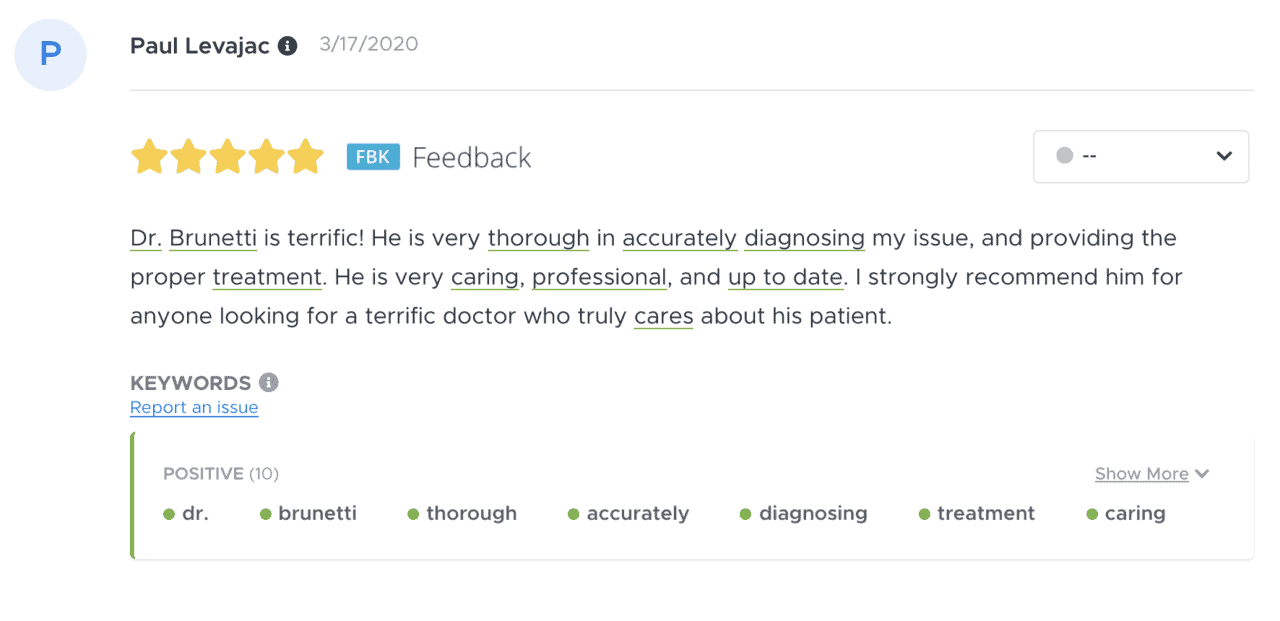
How Many People Rely on Online Reviews?
Research shows that consumers trust online reviews in the absence of personal recommendations made by friends and family. Reviews also influence shopping decisions more than any type of online marketing and advertising.
Here are other stats about customer reviews that further demonstrate the ever-growing impact of online reviews on consumer behavior.
- Star ratings matter. Approximately 70% of consumers use rating filters to weed out unwanted businesses. The most common filter is applied to see only businesses with 4-star ratings (out of 5) and higher (35%).
- Review readers are ready to make a purchase. 53% of people who search online for local businesses typically visit a business within 48 hours. The main types of information they’re looking for are: photos (24%), online reviews (21%), and search rankings (21%).
- Consumers expect brands to respond to reviews. 53% expect businesses to respond to negative reviews within 7 days.
- Google is the top review site. 63.6% of consumers check online reviews on Google before visiting a business — more than sites like Yelp, Tripadvisor, and Facebook.
What are the Best Review Sites?
Online review sites are a key way for the modern consumer to find businesses. If you’re building your online business presence, creating or claiming your listings on these review sites is a must. This leads to greater online visibility, which then results in higher local search rankings, more store visits, and greater sales.
Not sure where to start? Try the sites that attract the most traffic. After all, the more visitors a review site gets, the more likely consumers are to write and read online reviews there. Here’s a list of some of the best review sites, along with their traffic statistics and rankings.
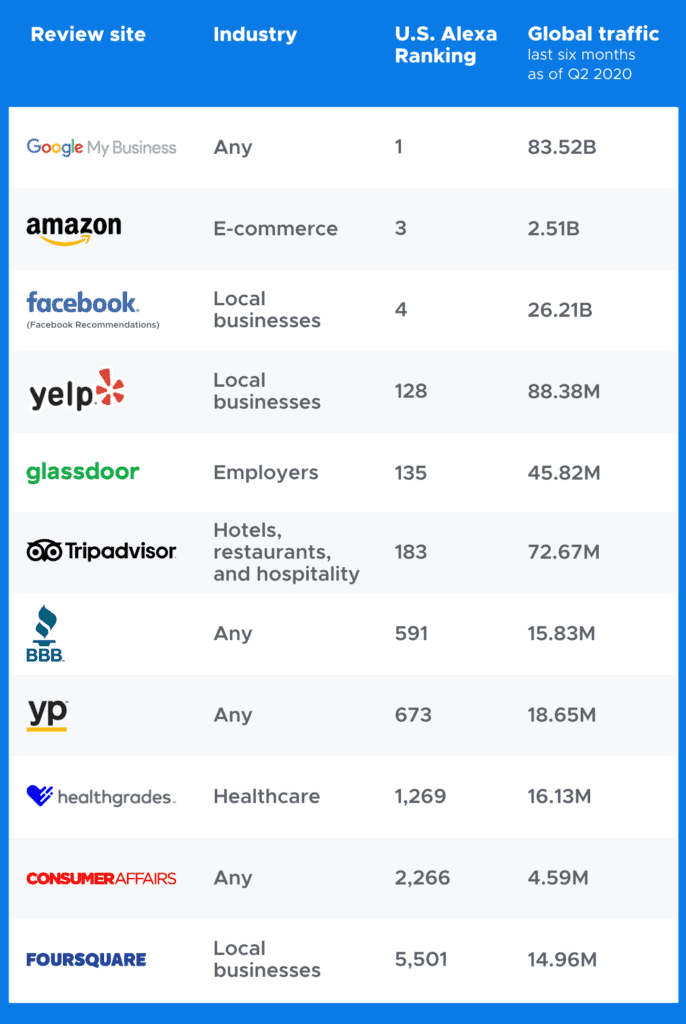
Based on the information above, as well as findings from the Online Reviews Statistics report, dedicated review sites like Yelp and Tripadvisor continue to hold a decent market share in the online reviews space.
Even more noteworthy is the tremendous growth of Google and Facebook, two popular websites where consumers are likely to already have user accounts and therefore experience less friction in writing online reviews of businesses.
Benefits of Online Reviews for Business
We’re used to seeing people with terrible customer service experiences air their grievances online. Review sites happen to be one of the most conspicuous platforms for doing so.
This shouldn’t distract from the incredible value online reviews can bring to a business. Many successful organizations harness their reviews to foster customer loyalty and improve business performance. As you look to do the same, keep in mind these key benefits of online reviews.
- Reviews shape your brand reputation.
- Reviews provide social proof.
- Reviews influence sales and make brands more trustworthy and credible.
- Reviews improve online visibility and boost search performance.
- Reviews contain valuable customer feedback.
Reviews Shape Brand Reputation
Want to get a firm handle on your brand reputation? Then read your online reviews.
It’s not rocket science: positive online reviews and high ratings will make your business look more attractive. On the other hand, low ratings and negative comments can drive potential customers away.

Apart from what customers say on online review sites, your brand reputation is also impacted by the way your business responds to reviews.
- Remember: 53% of customers expect businesses to respond to negative reviews within 7 days. Often, they are left disappointed. As much as 63% of them say that a business never responded to their review.
Not responding to negative reviews is often taken as a signal that a business is disinterested. It can even fuel the perception that the negative customer experience described by the reviewer is accurate and, worse, a reflection of how the business interacts with all other customers.
Reviews Provide Social Proof
People turn to a variety of useful sources to gather social proof that can guide their decisions on how to behave. These sources include credible experts, thought leaders, celebrities and influencers, family and friends, and the wisdom of the crowd.
In today’s digital age, online reviews have become one of the most potent forms of social proof as well.
Apart from convincing consumers what is / isn’t worth buying, reviews help determine a consumer’s perception of the brand before and after their experience.
For example: a recent guest’s opinion about their stay in a hotel with 100 reviews and a 4.8 rating average is less likely to go against the grain and differ from those who shared positive feedback. As they write the review, they will think: “This hotel has great reviews, so I’m going to say I had a great stay, too.”
Your business can apply this powerful concept of social proof and leverage online reviews to inspire consumer confidence.
- Share your best online reviews on social media
- Use review widgets to display online reviews on your website
- Create a testimonials page on your website
- Place third-party review website assets (Tripadvisor certificates and plaques, Google review stickers and posters, a Yelp sticker, etc.)

Reviews Influence Sales
Online reviews are a form of user-generated content (UGC): original content created by individuals outside your organization or brand. In today’s landscape, UGC is often more powerful and effective than promotional brand content and invasive advertising.
This is why more brands are using UGC-driven stories and moments to engage consumers versus simply pushing products or launching traditional sales promotions.

Another example that clearly demonstrates how online reviews influence sales is how healthcare provider ENT and Allergy Associates uses reviews as a tool to attract more patients. (Check out the full case study here.)
By using review widgets to dynamically display reviews on individual doctor profile pages, ENT and Allergy is able to attract more search traffic, improve its website engagement metrics, and generate a record-breaking number of web appointments.
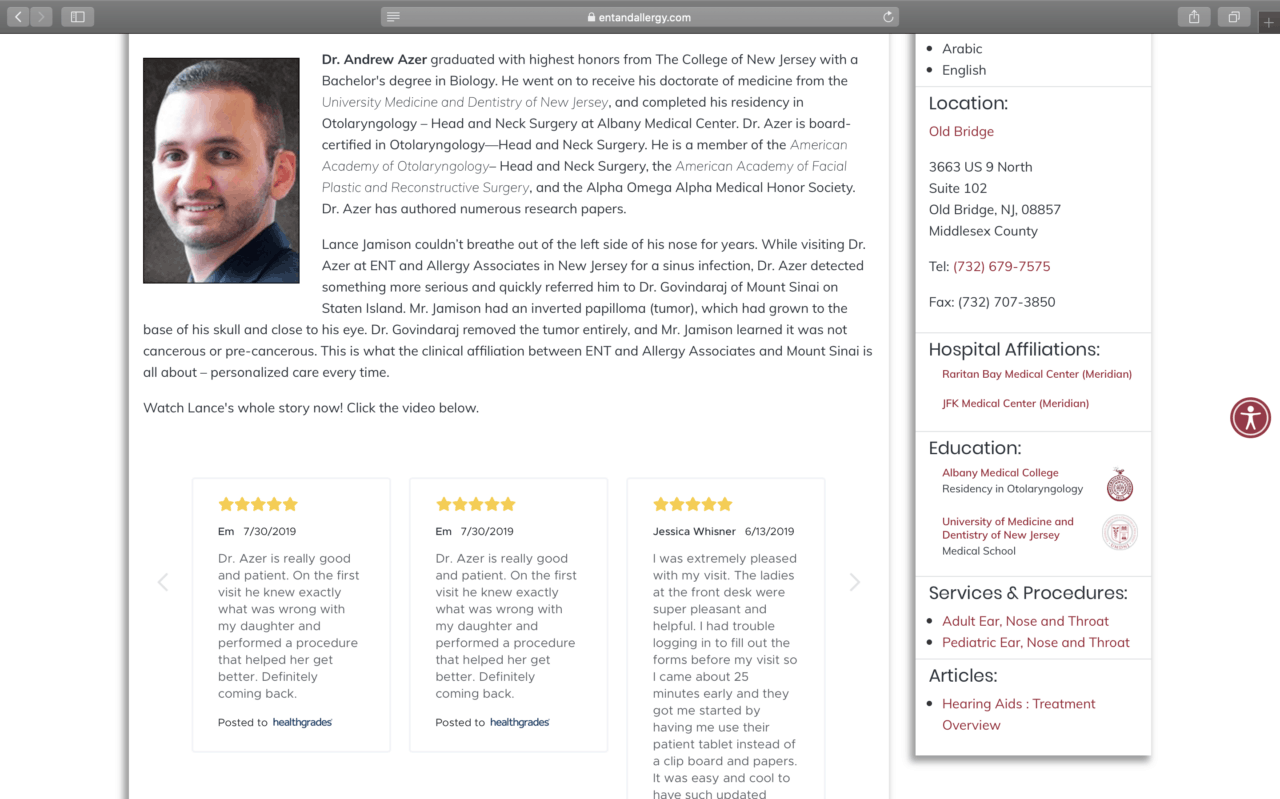
Not only do online reviews expand your business’s reach; they also empower your customers, fans, and advocates to be the voice of your brand. You are able to connect with your audience in a more authentic, credible, and personalized way — fostering consumer trust and ultimately driving sales.
Reviews Improve Search Performance and Visibility
Online reviews can work in perfect harmony with your search engine optimization (SEO) efforts. According to a Google help article, “Google review count and score are factored into local search ranking. High-quality, positive reviews from your customers will improve your business’s visibility and increase the likelihood that a potential customer will visit your location.”
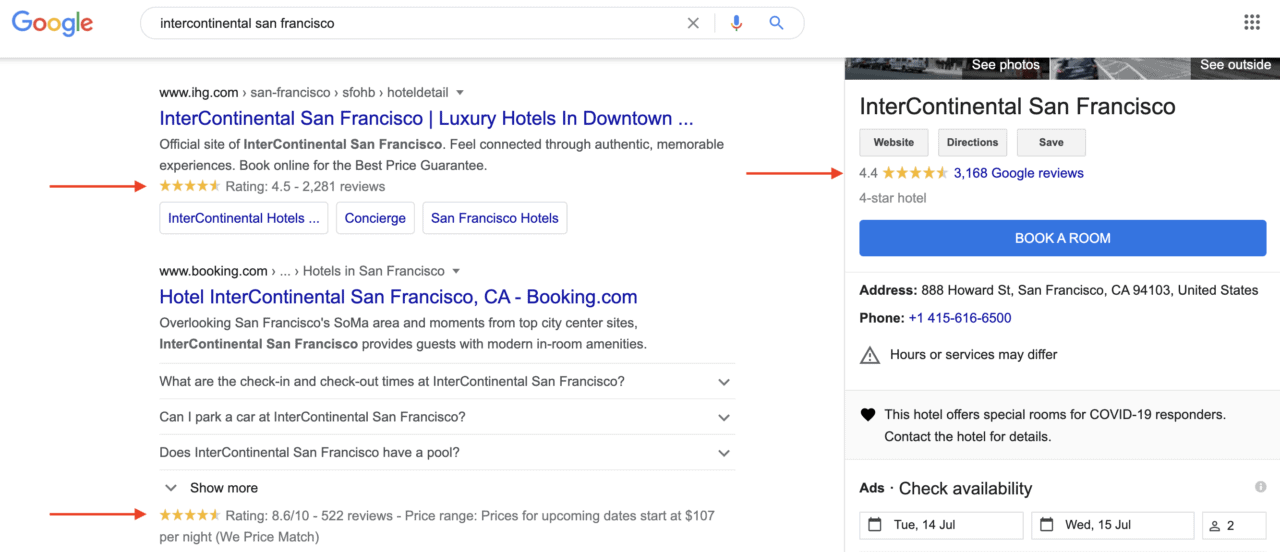
Proactively reaching out to customers and asking for reviews can dramatically improve your SEO performance. If you’re able to collect first-party reviews, adding them to your website can be particularly impactful. This helps search engines detect the presence of fresh UGC on your website. Other SEO benefits of first-party online reviews include improved on-site content density, increased triggers for search engines, and improved ranking for long-tail searches.
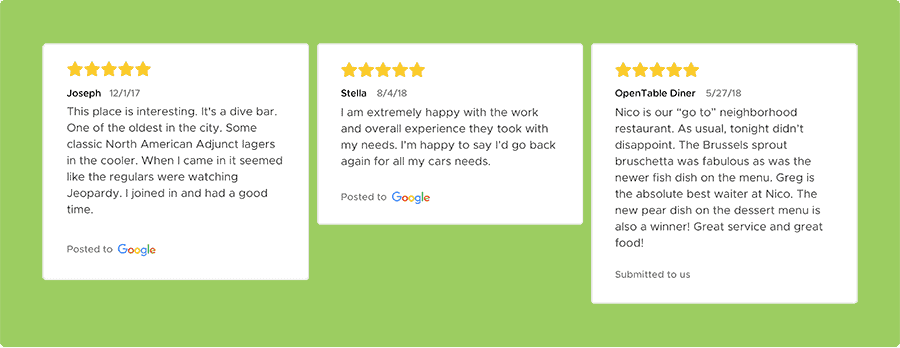
Reviews Contain Valuable Customer Feedback
Another one of the benefits of online reviews is that they help you learn what your customers love and care about. They’re a great source of information for understanding not only what sells, but also what you can do to improve the customer experience.
If you’re managing a small boutique hotel or an Airbnb space, you can read reviews to find out what guests enjoyed most about their stay. If you’re running a restaurant, your reviews will tell you which menu items are performing well, and whether or not the discounted starters are something diners actually care about.
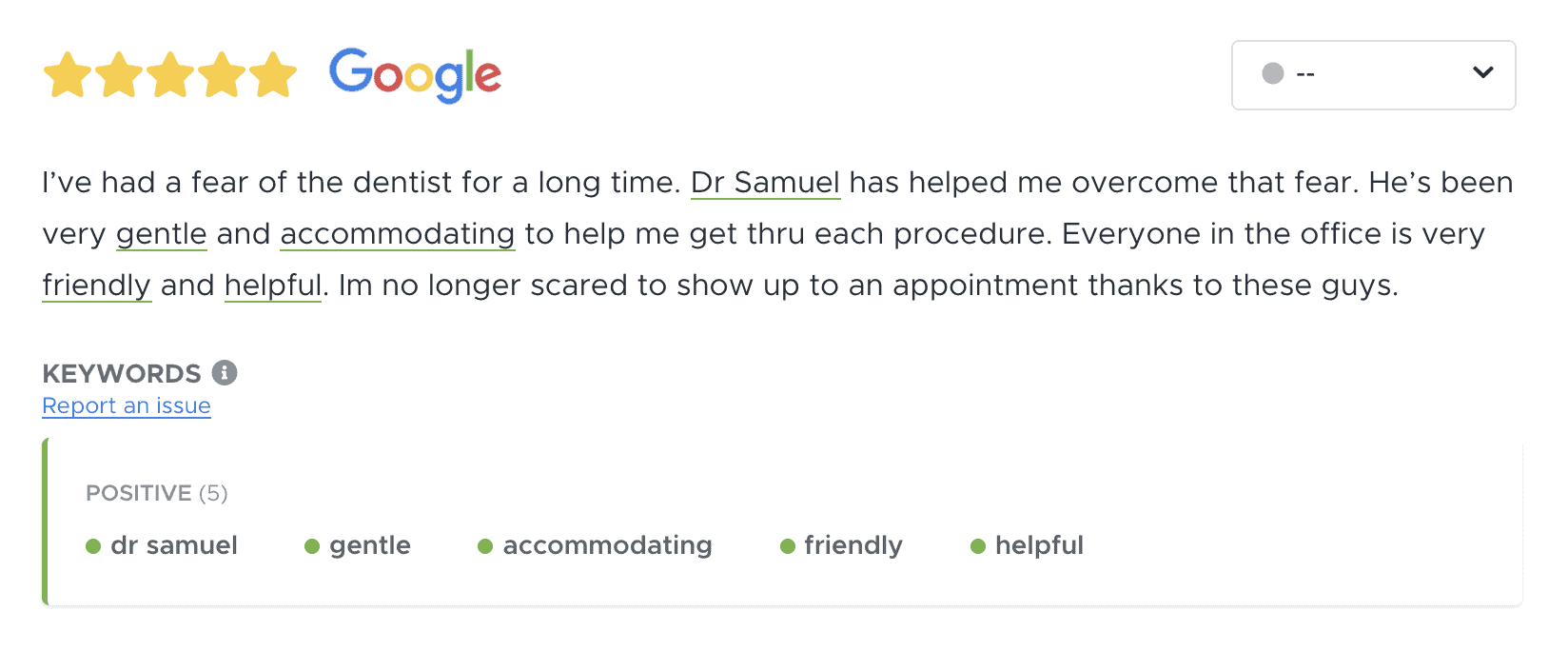
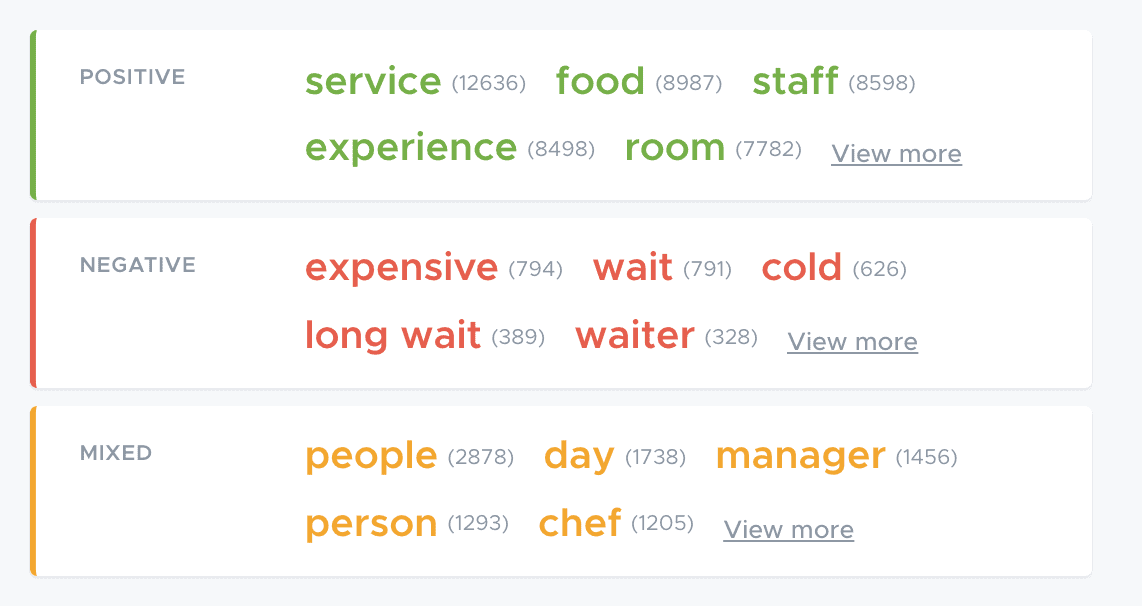
The ReviewTrackers platform allows you easily gather insights from large volumes of data to understand customer feedback and implement changes more quickly.
How Businesses Should Handle Reviews
It’s clear that online reviews have a direct impact on business performance. What’s not always clear, especially for small business owners and fledgling companies, are the ways to effectively manage these reviews.
As customers share their experiences on online review sites, how do you join and positively shape the conversation? Here are some online review management best practices you can apply:
Actively Monitor Online Reviews
Monitoring online reviews is one of the best ways to achieve an accurate understanding of customers and their satisfaction levels. Reviews, after all, are a major platform for the Voice of the Customer. Monitoring allows your business to tap into this and collect actionable information about the customer experience.
Online review monitoring also helps provide ideas on how you can improve your reputation, engage with potential customers, and boost your online visibility. (Such as: is your limited review count on Google preventing your business from appearing in search results?)
If you don’t have time to sit in front of a computer and manually track online reviews across multiple websites, you may look into investing in a review management software platform like ReviewTrackers to drive your efficiency.
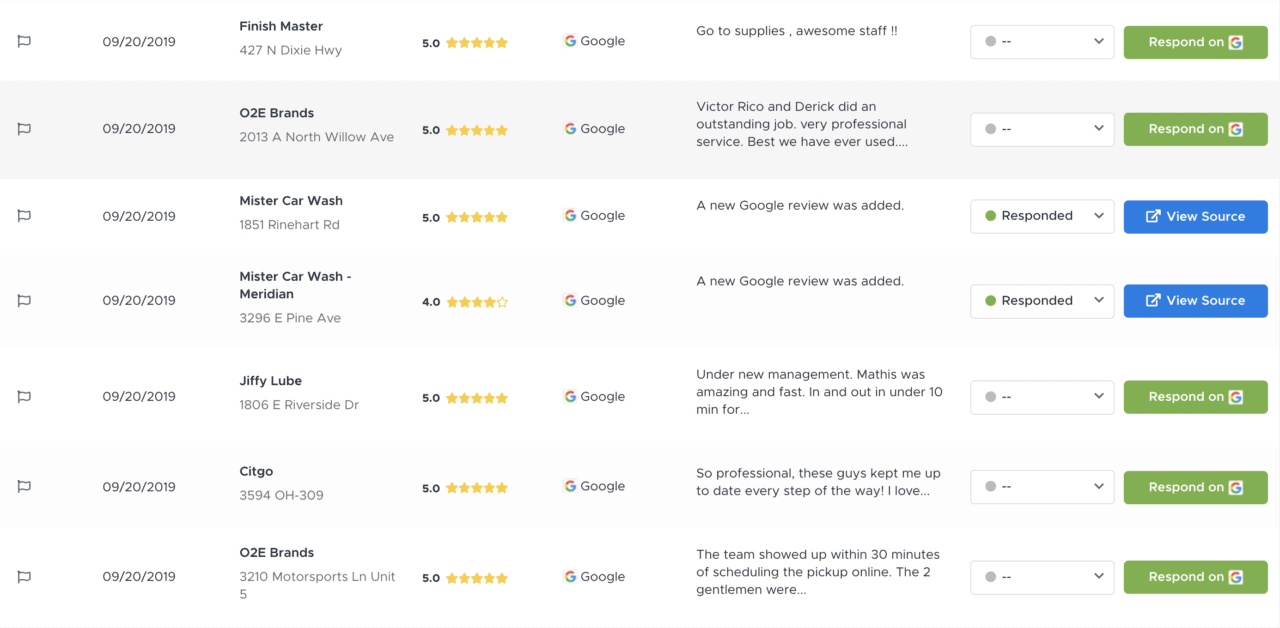
Respond to Online Reviews
Oftentimes, how a business responds to reviews and customer feedback matters more than what’s being said in the first place. According to the Online Reviews Stats report, 44% of consumers are more likely to visit a business if they see that the owner responds to reviews.
Be sure to thank your customers for taking the time to review your business. If it’s a positive online review, write your response in a way that highlights the customer’s positive experience.
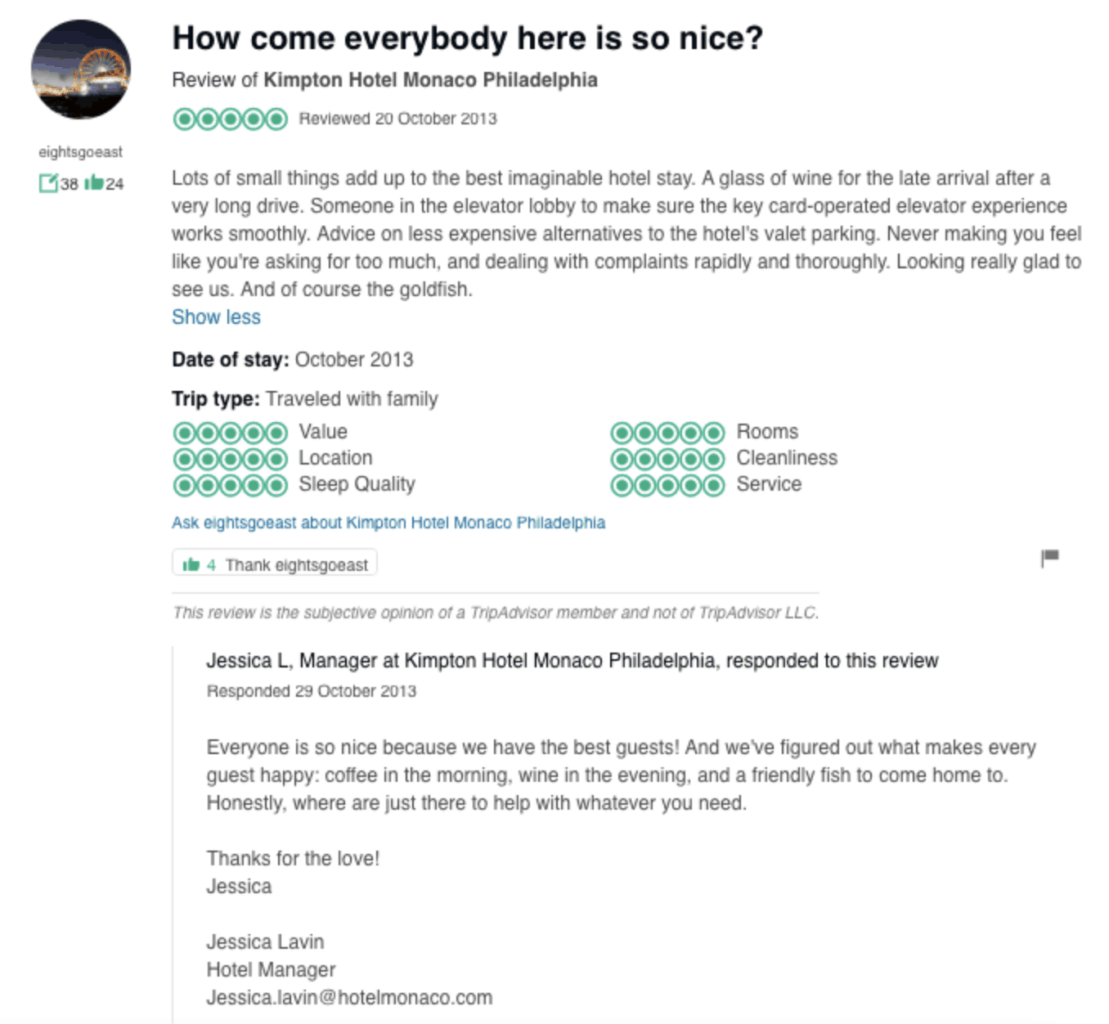
As for how to respond to negative reviews, it’s important to show empathy and offer solutions that address the customer’s issues. Speed is also crucial: the sooner you get back to the reviewer, the greater your chances are of improving the situation and protecting your business reputation.
Get More Online Reviews
Actively requesting customers for new reviews isn’t just a way to drown out any noise from negative reviews. Given the SEO impact of online reviews, it’s beneficial to have a steady stream of new reviews.
Often, the best way to get more online reviews is simply to ask customers. You can do this via email or SMS. You can also set up a system in which customers get review reminders shortly after they complete a transaction.

Here are some useful resources for getting more reviews:
- The Complete Guide: How to Ask Customers for Reviews
- 6 SMS Templates for Requesting Online Reviews
- How to Create and Use a Google Review Link
- 5 Ways to Get Reviews for Your Business
- Should You Buy Google Reviews?
Whatever method you choose for getting more reviews, keep in mind that often the best way to do so is to consistently deliver excellent customer experiences. The 5-star reviews and testimonials may come even without the need for you to ask.
Final Thoughts
The growth and popularity of online reviews have created new opportunities for businesses to develop relationships with customers. While it’s easy to be wary of digital spaces where customers can quickly become critics, you have to recognize that online reviews are generally good for business. They’re a great source of learning and can help you deliver experiences that delight customers and keep them coming back for more.